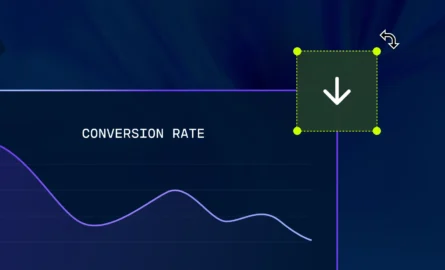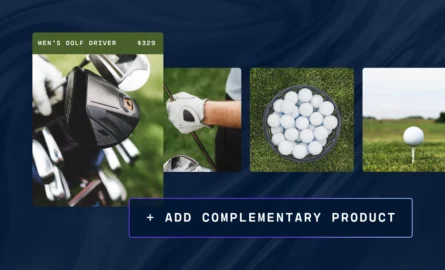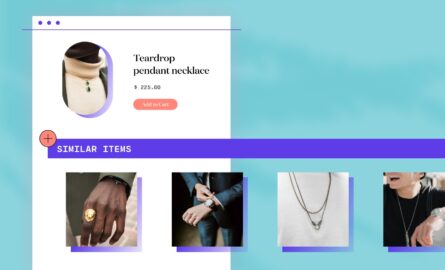Wholesale vs Distributor vs Retailer: A Quick Guide to the Supply Chain
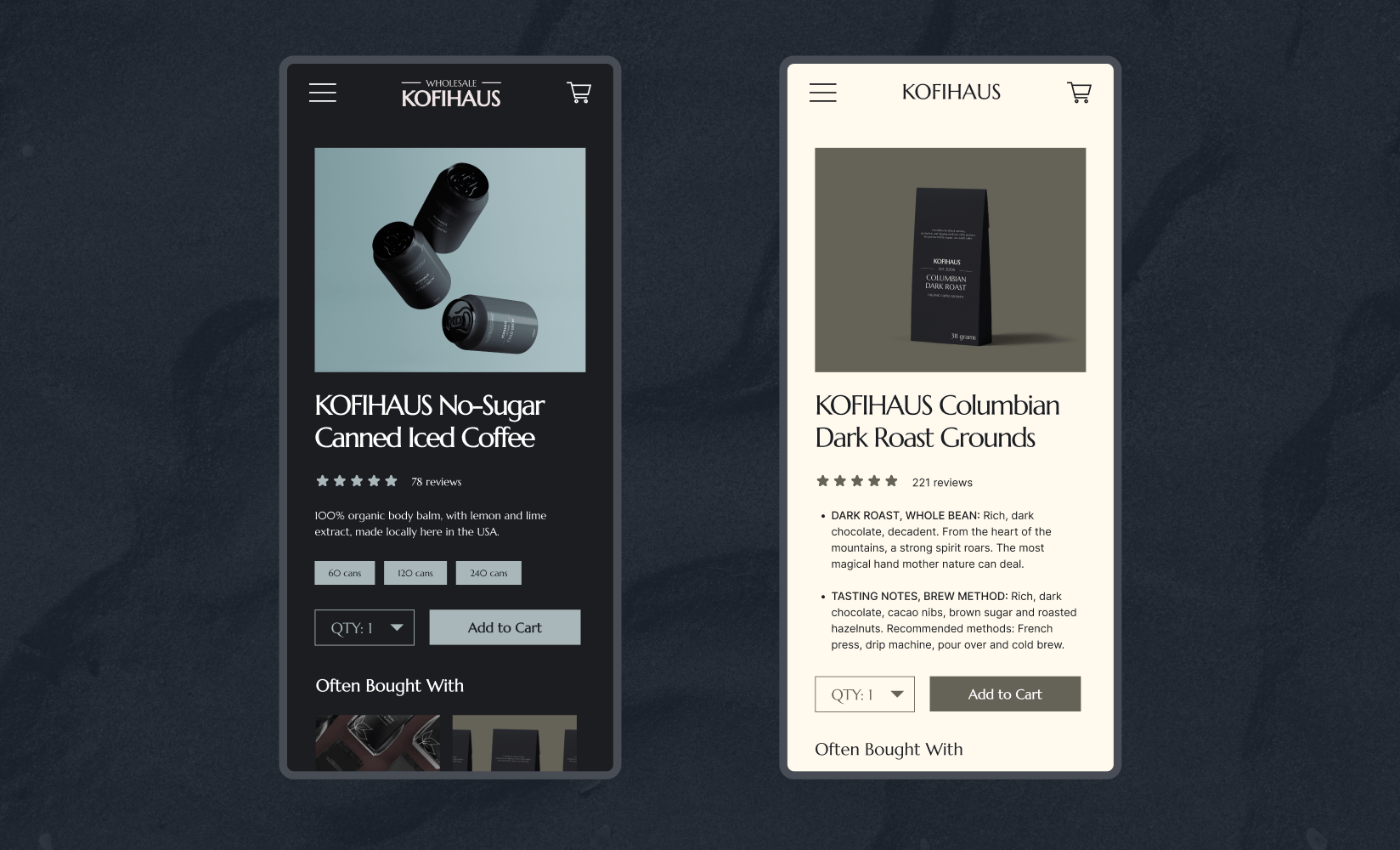
Commerce comes in many forms, and this differentiation largely comes down to who the buyer is.
As consumers, we know retail best. It’s everywhere we go—the kiosks, shops, and online stores that crowd around us on the internet and IRL.
As retailers and ecommerce brands, you see the supply chain layers above regular commerce that work to get products from manufacturers all the way to the end user.
These wholesalers and distributors are the silent B2B giants that buy, store, and sell products on a massive scale.
But how are they different from each other? What exactly do they do? And, do retailers have a choice to simplify their purchasing process (and lower costs)?
In this post, we’ll dig into this supply chain and define the roles within it. Then, we’ll talk about how these players differ from each other.
#cta-visual-pb#<cta-title>Build a better Shopify store<cta-title>Make your store look and feel as unique as your brand by customizing with the best page builder for Shopify.Start building for free
Distributors, wholesalers, retailers: What does it all mean?
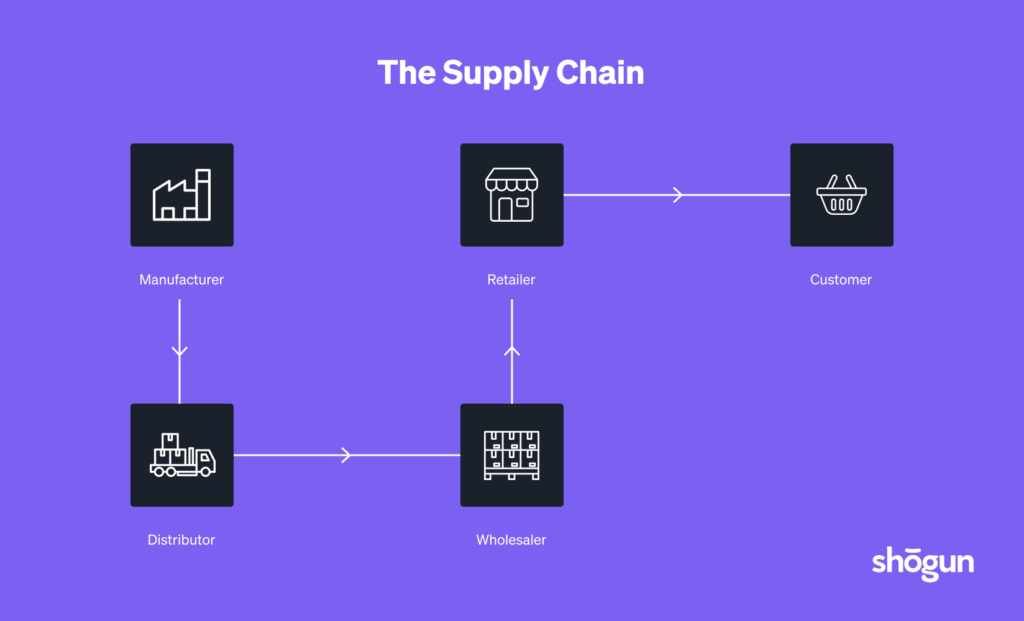
These three interconnected yet separate business models are all links in the wider supply chain that goes from raw materials to finished consumer-ready product.
Let’s quickly define each before going into exactly how they differ from one another.
What is a distributor?
Distributors are what links manufacturers to other parts of the supply chain, such as wholesalers, resellers, and retailers.
Image: UnsplashThrough their direct relationships with manufacturers, distributors buy in bulk and distribute products to a variety of merchants down the line.
Previously, these distributors would just sell to wholesalers. But, increasingly, distributors are also selling straight to retailers, cutting out the intermediaries and reducing retail pricing.
Often, distributors will operate in particular regions and have relationships with wholesalers and retailers in that specific market.
Example of a distributor
Distributors aren’t very well known to the general public, but a few notable companies are:
- MSC Industrial Supply, which sells industrial equipment
- Sysco, which sells food products
- Cardinal Health, which sells pharmaceuticals
What is a wholesaler?
Going down the chain, a wholesaler is the piece that usually sits between the distributor and the retailer.
They work with distributors (and sometimes manufacturers directly), buying goods in bulk to sell in small quantities to retailers.
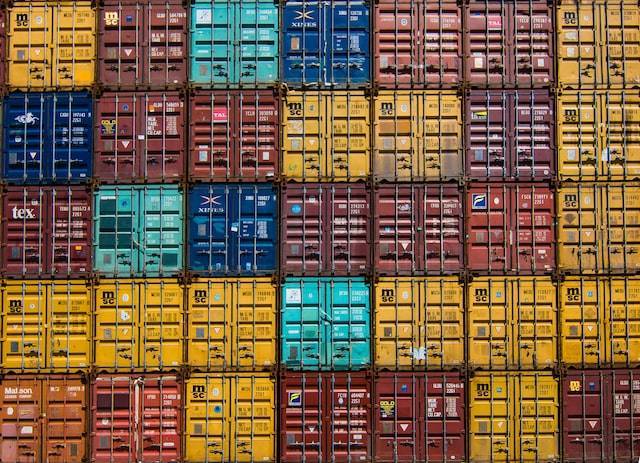
Wholesalers can offer a large variety of products or focus on a particular industry, such as apparel, cosmetics, or kitchen supplies.
Where distributors enter into contracts with certain manufacturers, wholesalers can buy from competing manufacturers to make up their inventory. For example, a cosmetics wholesaler could buy from several competing brands.
To attract retail buyers, wholesale businesses use B2B marketplaces or their own online stores.
The benefits of using a wholesale marketplace is that businesses don’t have to do much marketing, whereas those selling from a storefront need to use limited marketing channels to attract customers.
Wholesalers with their own stores can build a brand with a more loyal customer base, though.
Examples of wholesalers
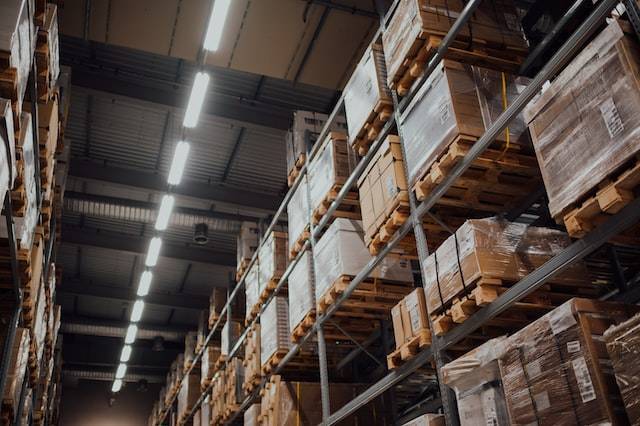
Since wholesale sits on the border of distributors and retailers, companies that fit this category can also be distributors or retailers.
For example, Costco is a wholesale market that also sells to consumers via memberships. Certain DTC retail brands like Copper Cow Coffee also have wholesale portals on their sites to sell to retailers.
On the other end of the spectrum, Sysco is a distributor that is also a wholesaler.
What is a retailer?
Finally, a retailer is a merchant that sells directly to consumers, often focusing on specific verticals and budgeting much more for marketing.
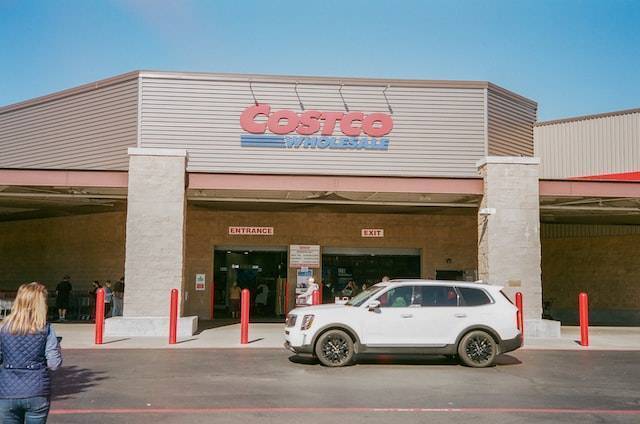
Retailers work with wholesalers and distributors to maintain their inventory. They can even buy directly from manufacturers, removing the go-betweens entirely, as shown by the wave of direct-to-consumer (DTC) brands.
Since retailers sell goods directly to customers, they handle all the marketing, customer service, returns, and exchanges. This represents an extra cost that gets built into the final price point.
While there are some major differences between wholesalers vs retailers, many brands have demonstrated the ability to sell both B2C and B2B while maintaining their unique branding.
Examples of retailers
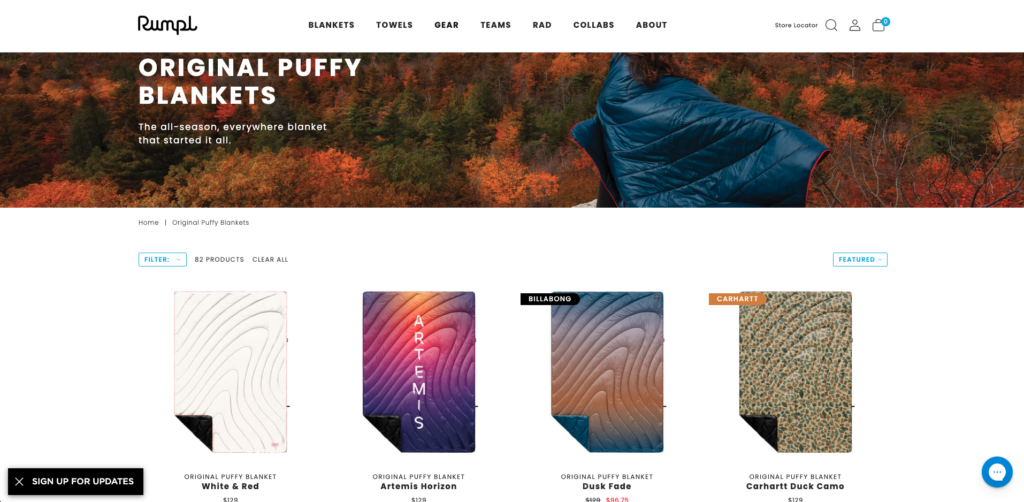
There are so many great examples of retail stores—from the massive players like Target, Walmart, and Amazon that stock nearly everything one might need to the predominantly online DTC merchants like PANGAIA, Rumpl, and Voluspa that focus on a particular product.
Wholesaler vs distributors vs retailers: What are the differences?
OK, now that we know what they are, let’s talk about the main operational differences between them.
Customers
As we’ve discussed, the most significant difference between these businesses is who they sell to.
While distributors can sell directly to retailers, they primarily sell to wholesalers. Wholesalers sell almost exclusively to retailers. And retailers sell directly to the consumer.
A few brands like Nike, Casper, Apple, and Rumpl sell their products both to retailers and directly to consumers.
Pricing
Going from the top of the supply chain to the bottom, the pricing structure changes dramatically.
This is mainly due to economies of scale, where distributors are buying large quantities of products to keep individual costs low.
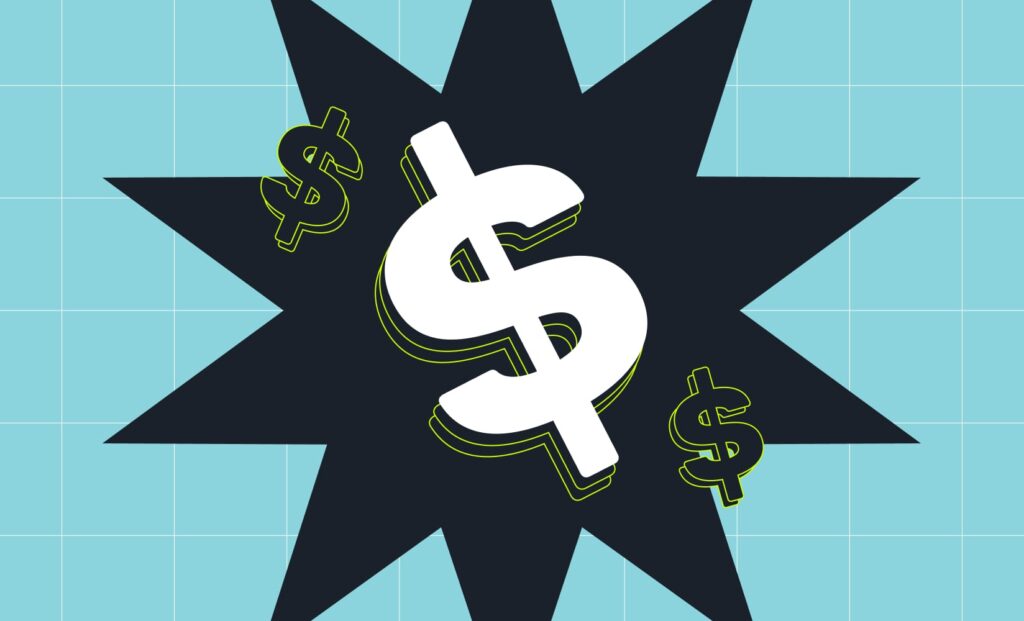
The distributors sell to the wholesalers at a increased price (still much lower than retail), who then take a margin on top of that when selling to retailers, who finally markup prices for the end user.
Inventory
Connected with the pricing differences is the matter of inventory. Buying in bulk requires the room to store excess product and the funds to keep cash tied up in inventory.
Distributors and wholesalers both have significant warehouse capacity so they can store a lot of inventory to be ready to sell right away.
They both help manufacturers by taking on the storage of products.
Retailers have far less storage capacity and need to limit their inventory to maintain a healthy cash flow. They don’t want too much money sitting on the shelf.
Fulfillment
As you get closer to the end user, your fulfillment strategy must get more specialized.
Distributors send fewer shipments via bulk freight to their wholesale and retail buyers, often within a specific region.
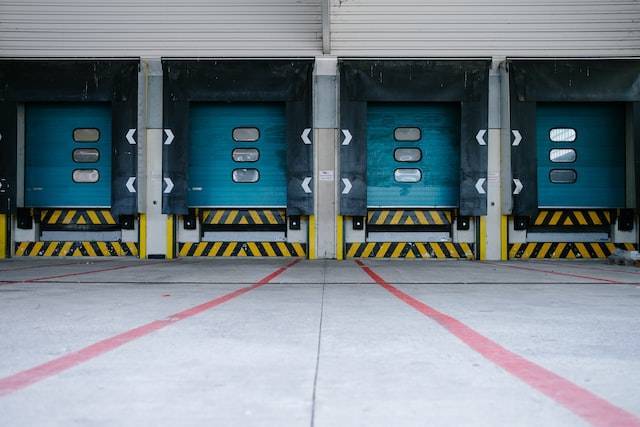
Order quantities increase and order size decreases for wholesalers, necessitating a greater variety of shipping methods to retailers all over the world.
Finally, retailers sell to the greatest number of customers. Not only that, but their customers want options and speed, so multiple shipping methods are a must-have.
Purchasing agreements
These different parts of the supply chain purchase in different ways.
Distributors usually have contracts with the manufacturers they buy from, which limit who else they can purchase from and the markets they can sell within.
Wholesalers have more freedom in their purchasing agreements, buying from both distributors and competing manufacturers. They may trade this freedom for a higher price point, though.
Further, wholesalers can operate wherever they like, while distributors commonly need to stick within certain markets based on their manufacturer contracts.
Retailers will have the most freedom in how they buy products, choosing to purchase from wholesalers, distributors, or even manufacturers without limits on how they sell their products, aside from MSRP or MAP manufacturer pricing suggestions.
Retailers can hack the supply chain
As you can see, the supply chain isn’t as simple as it looks at first glance.
While there is a clear hierarchy and flow of product, many companies defy categorization, acting not only as distributors but also wholesalers (and sometimes even retailers).
These shifting categories also mean that retailers can circumvent middlemen in the supply chain to buy directly from distributors or manufacturers, thus helping them keep prices low and margins high.
With good relationships in place, ecommerce retailers can carve out supply niches that benefit both them and their customers. Strive for that.
#cta-visual-pb#<cta-title>Build a better Shopify store<cta-title>Make your store look and feel as unique as your brand by customizing with the best page builder for Shopify.Start building for free

Sean Flannigan
Sean is one of Shogun's tireless content marketers. When he isn't creating exciting ecommerce content, he's probably biking or at the park.

